Post
A catch
Save a catch to start your fishing logbook. You will be able to to share it with the community if yo want!
A fishing trip
Post an ad to go fishing with other fishermen
Save a catch to start your fishing logbook. You will be able to to share it with the community if yo want!
Post an ad to go fishing with other fishermen
Share a thought, a question with the community
My favorite cities
×Join our 1009 fishermen and our 1 cofisherman in Lorn in West Dunbart where there's 1 spot. The fishing forecast is currently 4.6. The most caught fishes here are the red bream, the plaice fish, the sole fish and the cod fish. Come try the most famous fishing techniques like the trap fishing for lobster, the bolognese fishing, fishing for pollack with natural baits or angling squid with sardine.
Our fishing forecast of Lorn indicates the best time to go fishing in this city.
The Red Bream
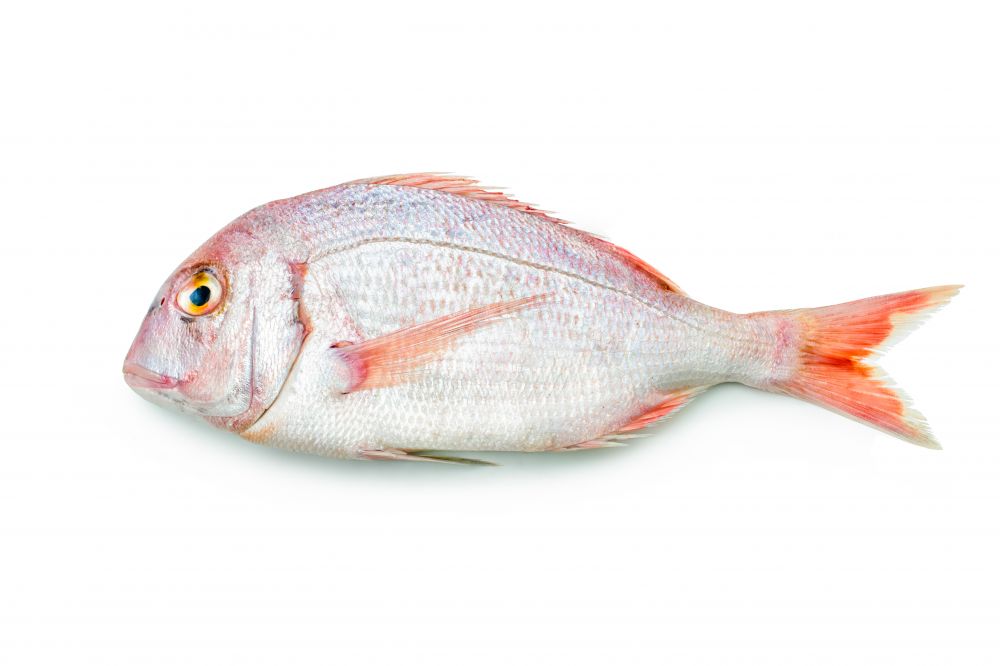
The Red Bream belongs to the Sparidae Family. The Red bream is a fish with a common length of 15 to 30 cm, the maximum known size being 60 cm. This fish can live for about twenty years. It breeds from May to August or March to July. Although it is fished all year round, it is between fall and winter that catches increase. The body is oval in shape, compressed laterally, as in most Sparidae. The head has an almost straight profile, a pointed snout, a fairly small mouth in a low and inclined position. The diameter of the eye is much smaller than the length of the muzzle. The inside of the mouth is greyish or whitish. The 2 jaws have sharp teeth in front (larger outer teeth, with small teeth) and 2 or 3 rows of molar-shaped teeth in the back. Like all Sparidae, it has only one dorsal fin. It begins at the plumbing of the pelvic bones and includes 12 spines and 10 to 11 soft rays. The anal fin has 3 spines and 8 to 9 soft rays, the length of its base is one-third that of the dorsal fin. The pectoral fins are high and very long, reaching almost vertically from the beginning of the anal fin. The caudal fin is forked. The body color is silvery pink with bluish reflections, the back and top of the head being darker. The upper part of the body is dotted with small blue spots. The upper outer edge of the lid is marked with a carmine red. The bases of the pectoral fins have a reddish spot and sometimes a spot is also observed at the base of the last rays of the dorsal fin.
The Red Bream is a famous fish you can catch in Lorn.The Plaice fish
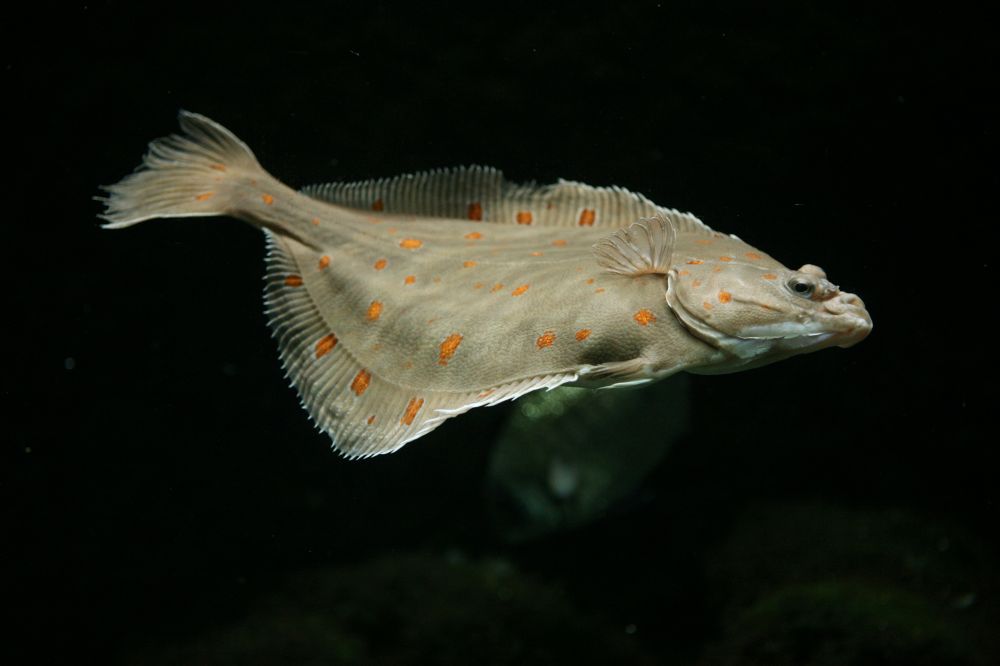
The Plaice fish belongs to the Pleuronectidae family. it does not usually exceed 61 cm. Growth is slow and the average lifespan is between 12 and 15 years. Reproduction takes place between February and May. Fertility is 125,000 eggs on average. It can be fished all year round. The plaice fish is a dexterous flat asymmetric fish: its two eyes are located on the right flank. Its body is thick. The ocular side is generally uniform, ranging from reddish to dark beige and spotted, while the blind side is white. His mouth is big. Its caudal is rounded and of moderate size. The lateral line is almost straight, except for a slight arc above the pectoral muscles. The dorsal fin has 76 to 101 rays, it originates in front of the left eye and ends on the caudal peduncle. The anal has 60 to 79 rays, it begins just below the operculum and ends under the posterior end of the dorsal fin. The head and body are covered with small ctenoid scales, they are rough on the ocular side; those on the blind side are mainly smooth and cycloid.
The Plaice fish is a famous fish you can catch in Lorn.The Sole Fish
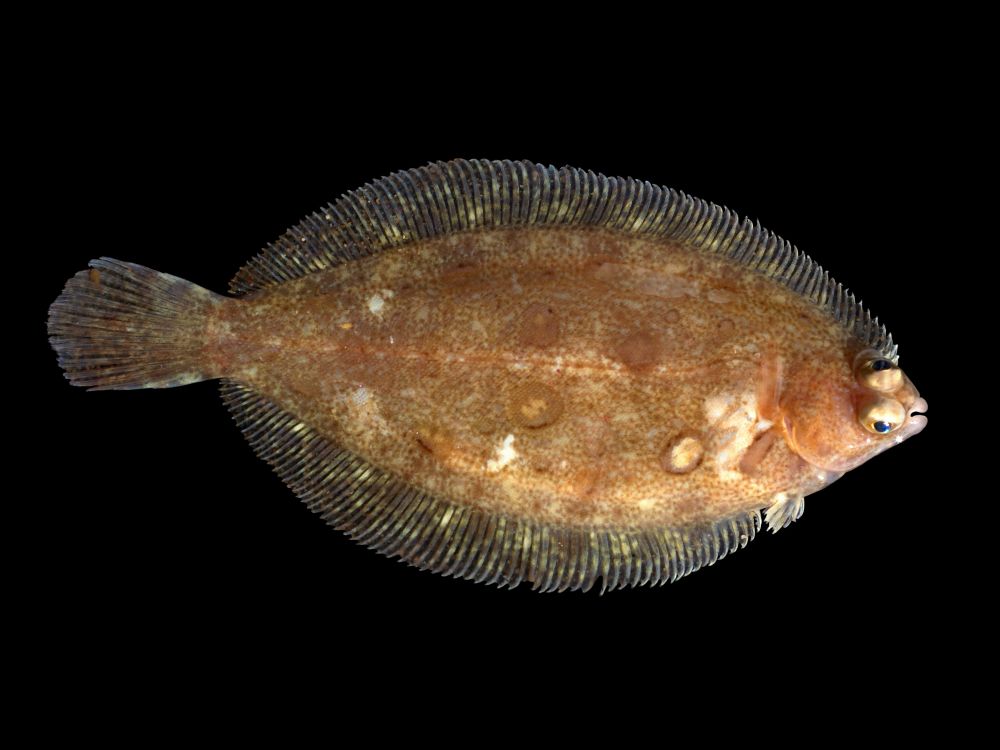
The sole fish belongs to the Soleidae family. The maximum size can reach 70 cm with a current size of 25 to 35 cm. Its longevity is 27 years. It breeds from January to March depending on the region. It can lay up to 1,300,000 eggs. It can be fished all year round. First of all, we notice in this flatfish its characteristic oval shape, which is not found in the other flatfish most frequently encountered by divers. The adult sole, a right-handed (or dexter) flatfish, rests on its left flank and has its eyes on the right side. The color of this fish is very variable: bluish grey to yellowish brown! The body is often marked with marbling and dark spots. The snout of the soles is rounded and shows a small arched mouth, located before the tip of the head. Her eyes are small and wide apart. The caudal has a rounded edge at the end of which a dark fringe can often be seen. On the seabed is the black spot (sometimes golden or brown) at the back and up of the pectoral fin. The dorsal and anal fins are generally white bordered and joined to the caudal by a thin membrane.
The Sole Fish is a famous fish you can catch in Lorn.The Cod fish
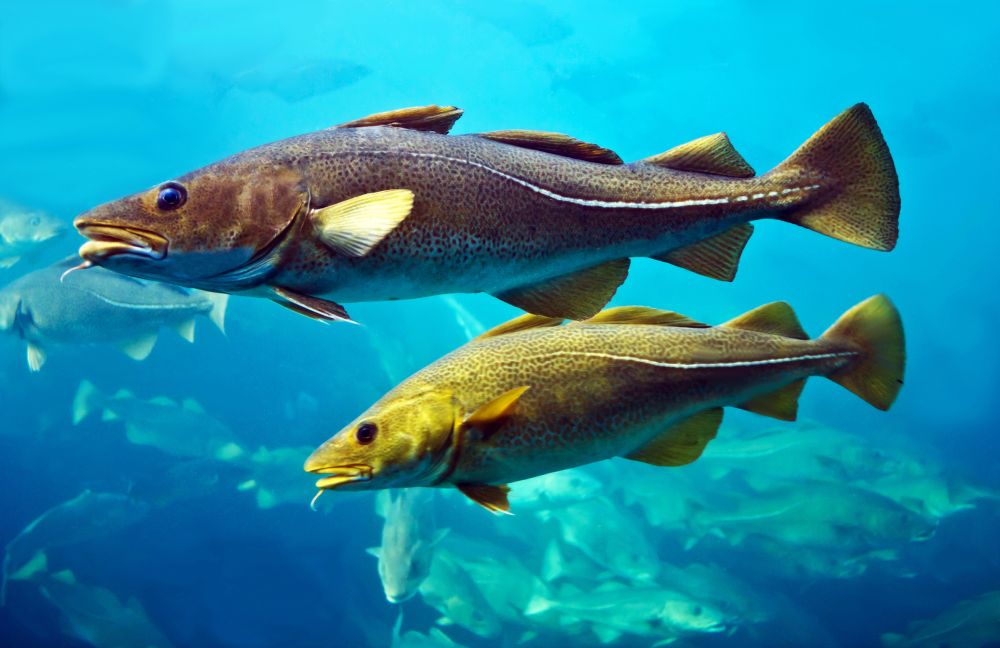
The Cod fish belongs to the Gadidae family. The Cod fish measure between 50 and 90 cm on average but can reach 1.80 metres for 40 kg and a maximum weight of 95.5 kg in some specimens. It can live up to 25 years. It reproduces from February to April. The female can lay 500,000 eggs. It can be fished all year round but productivity is better in March, April and October, November. Its elongated body is covered with small scales. The muzzle is relatively elongated, slightly prominent, conical and obtuse. A large mouth with the posterior edge reaching one third of the eye. There are many small teeth in each jaw. Presence of a barbel under the jaw. It has three dorsal fins and two anal fins. The pale lateral line is curved in the first 2/5 of the body. The body cavity is lined with a grey or silvery membrane and has small black, brown or red spots on the sides and back. The color varies according to the habitat and diet.
The Cod fish is a famous fish you can catch in Lorn.The Mullet fish
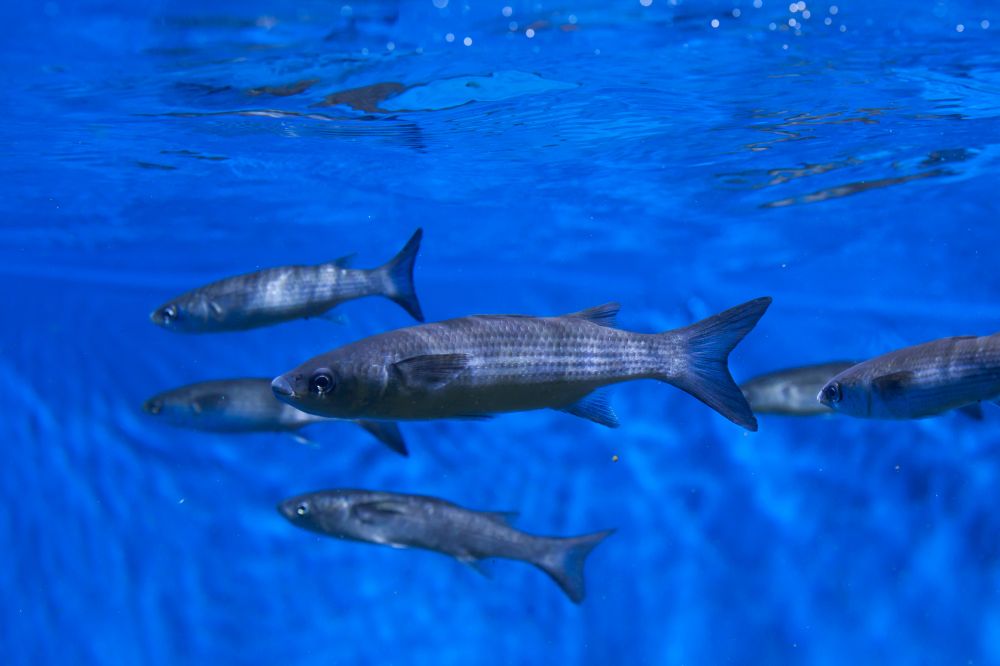
The Mullet fish belongs to the Mugilidae family. It can measure up to 75 cm and weigh 2.5 kg. A 16-year-old individual holds the observed longevity record. Breeding generally takes place from July to October. The female can lay up to 2.6 million eggs. It is fished from April to August. The mullet has an elongated body of about 35-50 cm or even 70 cm, with an oval cross-section and a robust appearance. Its color is generally silvery grey, bluish (sometimes more or less white, olive or brown), lightening on the sides and light belly. Sometimes grey longitudinal lines and golden reflections are present on the dorsal part. The lateral line is rarely visible. A small black spot is often present in the armpits of the pectoral muscles. The flattened head is wide, fat eyelids are well developed (but not always visible underwater because of their transparency) and protect the eyes near the snout. Its mouth has straight, dense and thin teeth, usually in several rows. The commissure ends below the posterior level of the nostril. Its upper lip is thin and smooth. It has two dorsal fins: the first with four spines and the second with 8-9 soft rays. The yellowish anal fin has 8 soft rays and 3 spines; pectoral fins have 16-19 rays; the pectoral axillary scale is well developed and about one-third the length of the fin. The ventral, anal and lower lobe of the caudal fins are sometimes yellow (but not necessarily yellow). The scales, arranged in lateral series (36-45), are cycloid (smooth
The Mullet fish is a famous fish you can catch in Lorn.Our fishing forecast of Lorn indicates the best time to go fishing in this city.
Our fishing forecast of Lorn indicates the best time to go fishing in this city.
Our fishing forecast of Lorn indicates the best time to go fishing in this city.
